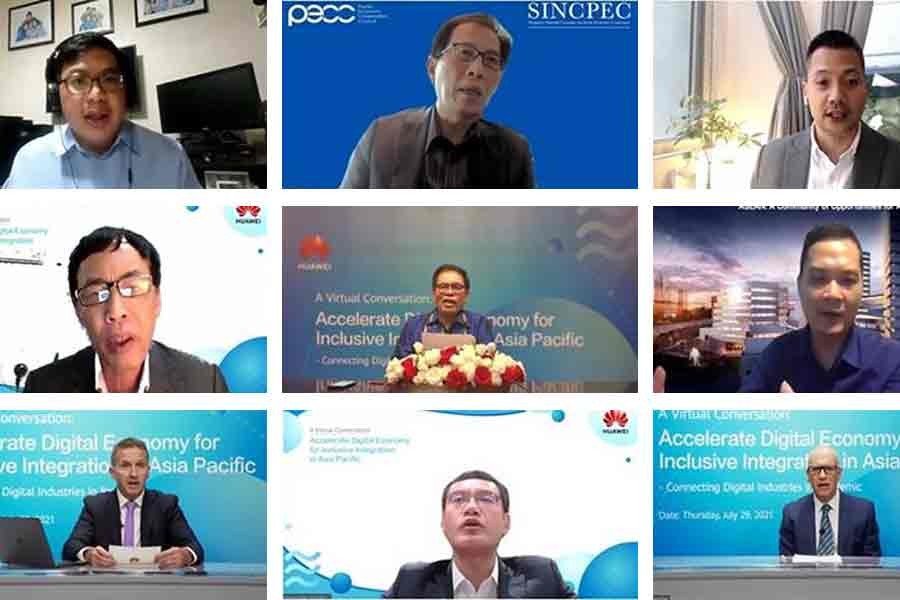Participants at a webinar, titled ‘Accelerate Digital Economy for Inclusive Integration in the Asia Pacific – Connecting Digital Industries in Pandemic’ have said that the digital economy is increasingly perceived as the way to overcome disruptions caused by the COVID-19 pandemic.
Representatives and thought leaders from governmental, industrial and academic sectors across the Asia Pacific joined the virtual conversation, organised by Huawei, to explore the multiple facets of the digital economy, from a market, technology, inclusiveness and sustainability perspective.
They called for leveraging digital opportunities to build an inclusive ecosystem and promoting regional integration that is particularly important while still combating the pandemic, according to a press statement.
Ambassador of Indonesia to China Djauhari Oratmangun pointed out in his keynote speech that a new digital economy is shaping the region.
“The digital transformation has been significantly accelerated during the pandemic, speeding up business changes,” he said.
Based on digital knowledge and infrastructure, the digital economy has powered a growing proportion of regional GDP and boosted resilience amid the pandemic. ASEAN predicts the digital economy will contribute 1 trillion US dollars to regional GDP by year.
“The development of digital economy ecosystem is a process that involves active participation of multiple stakeholders including those from the private sectors. We welcome the initiative of Huawei to organise this dialogue to practically advocate the process,” said Dr Le Quang Lan, Assistant Director for ICT and Tourism Division, ASEAN Secretariat.
Dr Tan Khee Giap, Chairman of the Singapore National Committee for Pacific Economic Cooperation (SINCPEC), stressed the importance of the social considerations of digitalising the economy during the panel discussion.
“Digitalisation is not just about technological progress, but quality empowerment of digitalization to the public at large is paramount if inclusive integration is to be achieved. The role of the government is providing digital capability as a public good, it can be complemented by private sector ICT companies such as Huawei with quality connectivity,” Tan Khee Giap said.
Dr Alvin P. Ang from Ateneo de Manila University agreed with the openly accessible approach to the upskilling public with digital knowledge.
“The education system must put in context the foundational elements of digitalisation. Whether it’s in the basic education level or in the middle-ages or those who are working already, trying to learn and upgrade themselves. We have to invest in them and allow our rural areas to catch up by at least providing them with the basic skills to get through the technology highway,” he said.
Conveying the business perspective, Professor Jose Decolongon, COO and Managing Director of Corporate Foresight of Embiggen Consulting Philippines, said that micro, small, medium enterprises need to have an understanding of digitalisation to perceive the opportunities when it comes to exploring the digital side of the business.
“Challenges are faced by these enterprises but also the large organizations. It's related to the coverage and speed of digital infrastructure. This is where telecom players such as Huawei and our local players can play an important role,” Jose Decolongon said.


